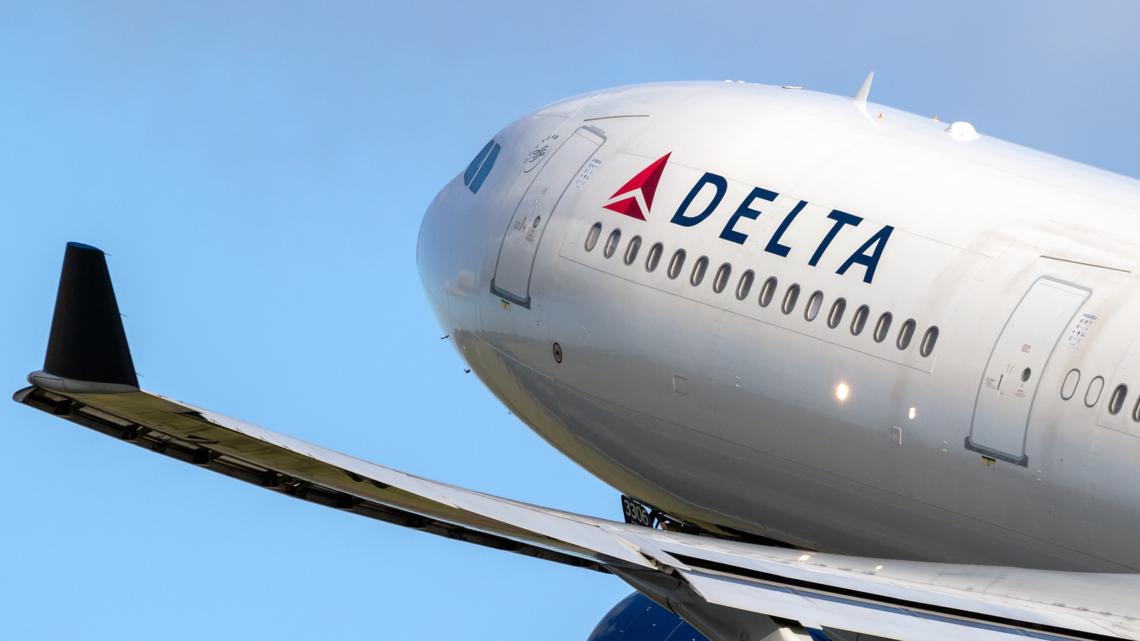A mid-flight scare on a Delta Air Lines flight has put the spotlight on the potential dangers of lithium-ion batteries in personal devices. On July 7, 2025, Delta flight 1334, en route from Atlanta (ATL) to Fort Lauderdale, was forced to divert after a passenger’s battery caught fire. This incident underscores the growing concern surrounding lithium-ion battery safety in air travel and highlights the importance of passenger awareness and preparedness.
The quick response of the flight attendants and pilots ensured the safety of the 185 passengers on board, but the incident serves as a crucial reminder of the risks associated with these ubiquitous power sources. This article will delve into the details of the Delta flight incident, explore the increasing safety concerns related to lithium-ion batteries, and provide essential tips for travelers to mitigate these risks. From proper packing procedures to in-flight safety measures, we’ll cover everything you need to know to ensure a safer travel experience.
Delta Flight 1334: A Mid-Air Emergency
Delta Air Lines flight 1334 experienced an emergency when a passenger’s personal electronic device battery caught fire mid-flight. The flight, carrying approximately 185 passengers from Atlanta to Fort Lauderdale, was diverted to Fort Myers as a precaution due to lingering smoke.
According to Delta’s statement, “Flight attendants worked quickly to extinguish a probable burning personal battery belonging to a customer while pilots followed procedures to safely divert the flight.” The airline also stated that the aircraft is currently under evaluation, and they are working to accommodate the affected passengers.
This incident highlights the potential risks associated with lithium-ion batteries, which are commonly found in devices like smartphones, laptops, and e-cigarettes. While such incidents are rare, the consequences can be severe, emphasizing the need for awareness and preventive measures.
The Growing Concern Over Lithium-Ion Batteries
Lithium-ion batteries have become indispensable in modern life, powering everything from smartphones to electric vehicles. However, their increasing prevalence also brings heightened safety concerns. These batteries are susceptible to overheating, fire, and even explosion under certain conditions.
According to aviation expert , “These incidents are on the rise, but the good news is they are largely preventable.” Marootian emphasized that passengers need to be more aware of what they are packing, particularly when it comes to devices powered by lithium-ion batteries.
Several factors can contribute to lithium-ion battery incidents, including manufacturing defects, physical damage, overcharging, and exposure to extreme temperatures. The Federal Aviation Administration (FAA) and other regulatory bodies have issued guidelines and regulations to address these risks, but passenger vigilance remains crucial.
Essential Packing Tips for Devices with Lithium-Ion Batteries
Proper packing is paramount when traveling with devices containing lithium-ion batteries. One of the most critical guidelines is to never pack these devices in checked luggage. Aviation expert highlights the importance of this rule, stating, “It’s critical to keep these devices within arm’s reach. If a fire were to happen in checked luggage, the outcome could be very different.”
Here are some additional packing tips to minimize risks:
- Keep devices in your carry-on: Always carry devices powered by lithium-ion batteries in your carry-on luggage.
- Protect against damage: Use protective cases to prevent physical damage to devices during transit.
- Avoid overcharging: Do not overcharge devices before or during your flight.
- Store spares safely: If you are carrying spare lithium-ion batteries, store them in a battery case or individual plastic bags to prevent short circuits.
In-Flight Safety Measures: What to Do in Case of an Emergency
Even with careful packing, it’s essential to be prepared for potential incidents during a flight. Familiarize yourself with the airline’s safety procedures and pay attention to the flight attendant’s instructions.
Here are some steps to take if you notice a burning smell, smoke, or fire involving a lithium-ion battery:
- Alert the crew: Immediately notify a flight attendant about the situation.
- Follow instructions: Follow the crew’s instructions carefully. They are trained to handle such emergencies.
- Stay calm: Panic can exacerbate the situation. Stay calm and help others around you remain calm.
The Delta flight incident underscores the importance of a well-trained flight crew. noted, “Thankfully, in today’s situation, the flight crew knew how to respond, and a major catastrophe was averted.”
Regulatory Guidelines and the Future of Lithium-Ion Battery Safety
The FAA and other international aviation authorities have established regulations and guidelines for transporting lithium-ion batteries on aircraft. These regulations are continuously updated to address emerging risks and technological advancements.
Some key regulatory measures include:
- Restrictions on the size and type of lithium-ion batteries allowed on passenger aircraft.
- Requirements for proper labeling and packaging of batteries.
- Guidelines for handling and extinguishing battery fires.
Looking ahead, ongoing research and development efforts are focused on improving the safety and stability of lithium-ion batteries. These efforts include developing new battery chemistries, enhancing battery management systems, and implementing advanced fire suppression technologies.
Conclusion: Prioritizing Safety in Air Travel
The battery fire incident on the Delta flight serves as a stark reminder of the potential hazards associated with lithium-ion batteries in air travel. By staying informed, following packing guidelines, and being prepared for in-flight emergencies, passengers can significantly reduce the risks.
As aviation expert puts it, awareness and prevention are key. Always keep your devices within reach, protect them from damage, and heed the advice of flight crews in emergency situations. By taking these precautions, you can help ensure a safer and more secure travel experience for yourself and your fellow passengers.
In conclusion, lithium-ion batteries are an integral part of our lives, but their safe handling requires vigilance and responsibility, especially when flying. Stay informed, stay prepared, and prioritize safety on your next journey.

Leave a Reply